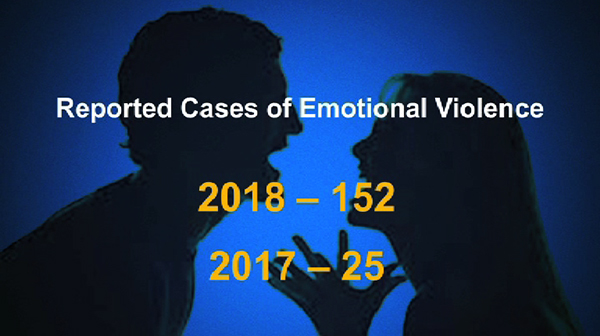 The number could be comparatively low but domestic violence does affect men too. More than 150 men reported experiencing emotional violence this year, according to RENEW.
The number could be comparatively low but domestic violence does affect men too. More than 150 men reported experiencing emotional violence this year, according to RENEW.
Emotional abuse is one of the forms of domestic violence where the perpetrator exposes or subjects the victim to behaviour that may cause them to suffer from psychological trauma including anxiety, chronic depression or post-traumatic stress disorder.
“What we have seen is cases where men feel they are harassed, blackmailed, threatened or not happy with how the wife has been taking care of the family,” RENEW’s Executive Director Tandin Wangmo said.
“There are also instances where women are alcoholic, gambling and not giving enough attention at home and husbands would reach out to us, asking if we can help counsel the wife and make her aware of her responsibilities.”
Trust issues, extra marital affairs and men not being able to balance their time between work and family were also found to result in emotional abuse.
“In some cases, it is the men who are working and wives are fulltime homemakers, so the husband, for whatever reasons, would be coming home very late and they are not able to justify why they are late. And the women out of jealousy do a lot of things. They are not happy and claim the man is always out of home, not paying enough attention to her or the children and so she wants a divorce. And the man feels that his office pressure is already too much and having another pressure to deal at home is something he shouldn’t be worried about,” Tandin Wangmo said.
“Then there are instances of lover’s tiff where the woman would threaten to either commit suicide or walk out of a relationship and the man does not want to end the relationship, so they come here.”
The National Commission for Women and Children (NCWC) also receives cases where the male are victims of emotional abuse. Around 10 men reported to commission.
Two of them walked into the NCWC office in Thimphu, while eight others called the commission’s helpline launched in July this year.
“Two of them gave us mobile numbers of their wives and wanted us to counsel them. While dealing with the cases, what I came to understand is that problems are mainly because of a lack of communication between the couples,” Yeshey Lham, a Senior Counsellor with NCWC, said.
“Our service is not just for women, we also entertain men. We listen to both sides of the stories.”
It is feared the actual number of male victims could be higher. Men are usually not looked at as victims. Public discourse or discussions on domestic violence usually position women as victims and men as aggressors or perpetrators.
This doesn’t make it easy for male victims to open up about abuses they face at home.







